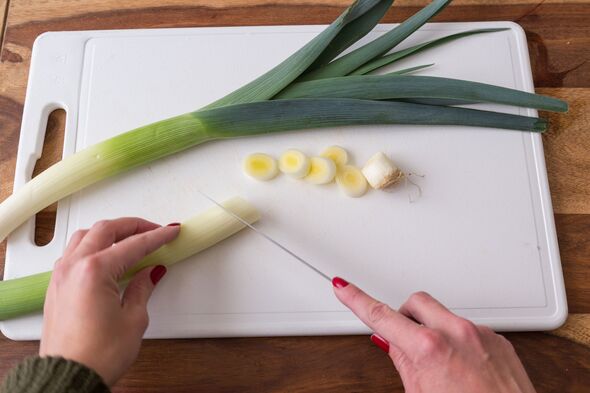Lifestyle
Experts Warn: Replace Worn Chopping Boards to Prevent Risks

Households in the UK are being urged to replace worn-out chopping boards to mitigate potential health risks associated with food preparation. According to food safety experts at Knorr, damaged chopping boards can harbor bacteria, leading to increased chances of cross-contamination and food poisoning.
Chopping boards are indispensable tools in any kitchen, used for various tasks such as slicing vegetables and preparing meat. However, their importance is often overlooked when it comes to maintenance. “If your board is covered in scratches, buy a new one!” Knorr cautioned. “Bacteria love to hide inside the grooves,” they added, highlighting the silent dangers posed by these common kitchen items.
Microplastics and Health Concerns
The warning extends beyond hygiene. Recent research published in the journal Environmental Science & Technology in 2024 brought attention to another risk: microplastics. The study, titled “Cutting Boards: An Overlooked Source of Microplastics in Human Food?”, investigated the release of tiny plastic particles from scratched plastic chopping boards. Researchers found that slicing food on these surfaces could lead to microplastics adhering to ingredients, potentially exposing users to about 50 grams of microplastics annually—an amount comparable to the weight of a standard chocolate bar.
Microplastics, defined as particles smaller than 5mm, have increasingly been found in oceans, soil, and even within the human body. Previous studies have linked these particles to health issues including inflammation and cardiovascular risks. Despite the potential dangers, the researchers noted that the risk from cutting boards appears to be relatively low.
Dr. Manish Shetty, an assistant professor of chemical engineering at Texas A&M University, emphasized that “plastic cutting boards are generally safe to use.” He reassured the public that most microplastic particles are likely washed away during cleaning. Dr. Hoaran Wei from the University of Wisconsin-Madison echoed this sentiment, stating, “The study didn’t find any toxicity effects, which is a good sign.” While the research highlights a possible source of microplastics, both experts agreed that more comprehensive studies are needed to understand the long-term health implications.
Practical Kitchen Safety Tips
In light of these findings, Knorr recommends several practical steps for kitchen safety. They advise using separate chopping boards for raw and cooked foods to prevent cross-contamination. Additionally, it is essential to clean boards with hot, soapy water after each use and to avoid using tea towels for drying, as these can also harbor bacteria.
The current advice is straightforward: replace your chopping board if it shows signs of wear, particularly scratches, and adhere to basic hygiene protocols. By taking these precautions, individuals can significantly reduce health risks associated with food preparation and ensure a safer cooking environment in their homes.
-

 World1 week ago
World1 week agoCoronation Street’s Shocking Murder Twist Reveals Family Secrets
-

 Entertainment1 week ago
Entertainment1 week agoAndrew Pierce Confirms Departure from ITV’s Good Morning Britain
-

 Entertainment5 months ago
Entertainment5 months agoKate Garraway Sells £2 Million Home Amid Financial Struggles
-

 Entertainment4 months ago
Entertainment4 months agoAnn Ming Reflects on ITV’s ‘I Fought the Law’ Drama
-

 Entertainment1 month ago
Entertainment1 month agoCoronation Street Fans React as Todd Faces Heartbreaking Choice
-

 Health4 months ago
Health4 months agoKatie Price Faces New Health Concerns After Cancer Symptoms Resurface
-

 World1 month ago
World1 month agoBailey Announces Heartbreaking Split from Rebecca After Reunion
-

 Entertainment2 weeks ago
Entertainment2 weeks agoTwo Stars Evicted from I’m A Celebrity Just Days Before Finale
-

 World2 weeks ago
World2 weeks agoKevin Sinfield Exceeds Fundraising Goal Ahead of Final Marathons
-

 Entertainment4 months ago
Entertainment4 months agoCoronation Street’s Carl Webster Faces Trouble with New Affairs
-

 Entertainment3 months ago
Entertainment3 months agoWhere is Tinder Swindler Simon Leviev? Latest Updates Revealed
-

 Entertainment5 months ago
Entertainment5 months agoMarkiplier Addresses AI Controversy During Livestream Response





















